Drive slowly. Turn off your music. Put out your cigarette. Place your hands firmly on the steering wheel – make them visible. Stay alert. Wait for their signal.
This is what Mahmoud Ali*, 29, must do about 15 times every day while at work. He is a salesman for a plumbing and sanitary product company based in Ramallah, who lives in a village in Salfit and must drive to his clients in the Bethlehem and Hebron governorates. He easily drives over 200 km per day. In the occupied West Bank, this means going through many obstacles.
“I drive through more than 15 checkpoints,” per day, Ali told Mondoweiss. “That means they take away my freedom 15 times and give it back to me 15 times. My freedom is in their hands, not my hands.”
In 2018 the United Nations reported there are 140 checkpoints in the West Bank, of which around half are permanently staffed crossings and half are occasionally used. Of the permanent checkpoints, 32 are entry/exit points to Israel where Palestinians must go through absurd and sometimes dangerous conditions when crossing these checkpoints to work inside Israel every day. A further 32 are internal to the West Bank. These permanent checkpoints deep within the West Bank separate Palestinian cities and villages from one another, or sometimes divides cities in half, as is the case in Hebron. Furthermore, last year the UN reported over 700 roadblocks and other obstacles Palestinians must face that severely restrict their freedom of movement within the claimed Palestinian territories itself.
The occupied West Bank is sprinkled with daily reminders of Palestinian oppression – ominous watchtowers, heavily-armed soldiers posted behind cement blocks, infamous red signs notating “danger” to Israelis if they enter a Palestinian-controlled area, and of course the separation wall. But at internal checkpoints, Palestinians must prepare themselves to look at the occupation in the face.
“You are a human with nothing – no soul, no dignity, no rights to do anything,” at a checkpoint, Ali exclaimed. “Even if you want to cough and draw your tissue from your pocket it’s not allowed, in front of them.”
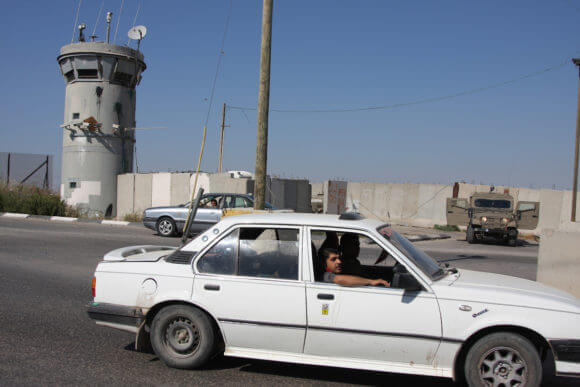
Subjugation, humiliation, and violence
Iad Abu Hamid, 39 from Jalazone refugee camp in Ramallah, is a manager of a shared taxi service – the primary public transportation for Palestinians in the West Bank. Internal checkpoints make his work difficult, he tells Mondoweiss. “If you want to normally drive from here, the station of Ramallah, to Nablus it will take maybe one hour. But if you go another way,” which is necessary if a checkpoint is closed, he explains, “you will need exactly two and half hours.”
More than just being a nuisance in daily life, obstructing Palestinian time and energy, checkpoints are often points of subjugation and humiliation. Routine encounters can even become deadly.
“I felt like every time I’ve been stopped by [the Israeli military], in any checkpoint during and after the knife intifada,” Ali speaks of the heightened violence in 2014 in the West Bank, “they will kill me.”
Ali says he hears it in the news all the time, of Palestinians getting shot and killed at checkpoints even in cases where no weapons were found. “Why? Because he tried to pull his ID from his pocket or from his car and they will shoot him without knowing.”
Young men between the ages of 20 and 30, driving alone – like Ali everyday for work – are the most susceptible to this violence and humiliation at checkpoints. “Can you imagine in the winter you should take off your jacket, your t-shirt and sometimes your pants to show them that you don’t have anything?” Ali asks incredulously. “It’s happened with me 10 times. More than 10 times. Just going to work.”
“When we’re talking about Israelis being able to move freely through the [West Bank] and Palestinians not, what that spells out is racial profiling,” Amit Gilutz, spokesperson for B’Tselem, told Mondoweiss.
“And on top of it,” he adds, “I think, Israeli soldiers are used to being able to treat Palestinians very harshly […] because they’re also not held to account to any violation they commit.”
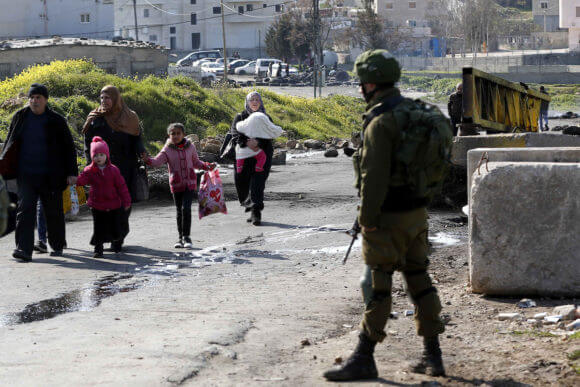
Policy of fragmentation
Since the occupation of the Palestinian territories in 1967, Gilutz explains how Israel has deliberately carried out a process of fragmentation. He sites the annexation of East Jerusalem, the separation wall, and permanent internal checkpoints as examples of this policy.
As a part of the Oslo Agreement in the 1990s, the West Bank was interimly separated into three areas – Area A, under Palestinian Authority (PA) control; Area B, under PA civil control and Israeli military control; and Area C, full Israeli military control. “This division into these three categories of control, which is really what they are,” Gilutz explains, “became a permanent reality and a mechanism through which Israel enforces its control of the land and the people who live on it.”
There are 165 Palestinian “enclaves” that are separated from one another with the A/B/C division of the land, according to Gilutz, and there is a checkpoint at each entrance to every enclave – and anywhere in between. Every checkpoint can be opened or closed indiscriminately by the Israeli military, and “flying” checkpoints can be constructed anywhere the military wishes simply by placing a military vehicle in the middle of the road. On top of the 41 permanently constructed internal checkpoints, B’Tselem monitors flying checkpoints, documenting anywhere between 100 to more than 150 each month.
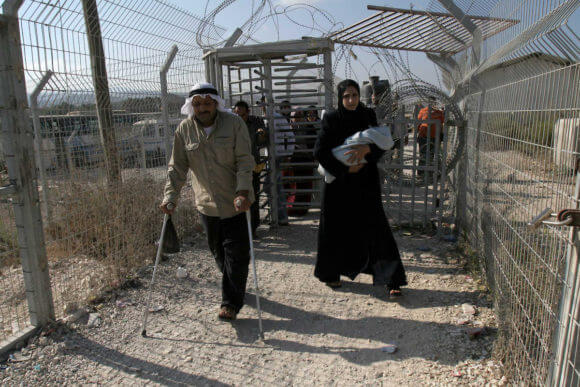
‘It was just a form of collective punishment’
Mondoweiss reached out to the Israeli Defense Force (IDF) for comment on the intended purpose of internal checkpoints, but a spokesperson did not respond by the time of publication.
Yet Tom Mehager, 42, a former commander in the Israeli military during the second intifada who was later jailed for 4 months after refusing to carry out orders, told Mondoweiss, “I was told in the first introduction we were just there for the sake of harassment.”
Mehager is the program director at the Van Leer Jerusalem Institute and Mizrahi rights activist. He explained, while serving he was ordered to create a roadblock by closing a checkpoint between the villages of Taybeh, Rummon, and Deir Jarir, East of Ramallah on the way to Jericho. “I was the commander and as I understood it, it was just a form of collective punishment.”
“You know people are coming and begging you to let them go from their village to work, in order to make a living,” Mehager described. “We were blocking them from making their living.”
“I just couldn’t take it anymore,” he continued. “I was very ashamed to do it. So that’s why I decided to refuse.”
Mehager does not remember receiving any training on conduct at a checkpoint or how to interact with people crossing. “When I was in a roadblock, no one told us anything about rules […] There are no regulations.”
He said that unnecessary force was commonplace by soldiers because of this lack of training. “They are not oriented to serve society they are oriented to fight, to be in a battle,” he said, “You were trained to be a soldier you weren’t trained to serve people.”
*name altered to protect privacy
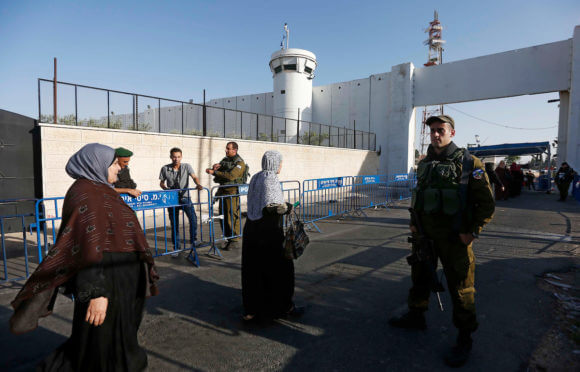

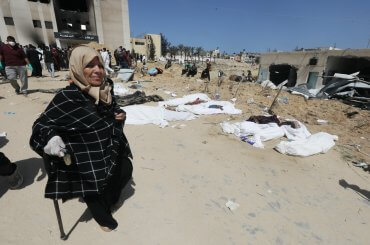
When I was in Hebron, three years ago (with Christian Peacemaker Teams. You don’t have to be a Christian! Who knew?), there was a checkpoint we would go to, to monitor what happened there. We could see it from our window. We weren’t allowed to walk to it. We had to take a taxi for twenty minutes.
Israel brags about how environmentally sensitive it is. Well, think of all the gas people use taking roundabout routes.